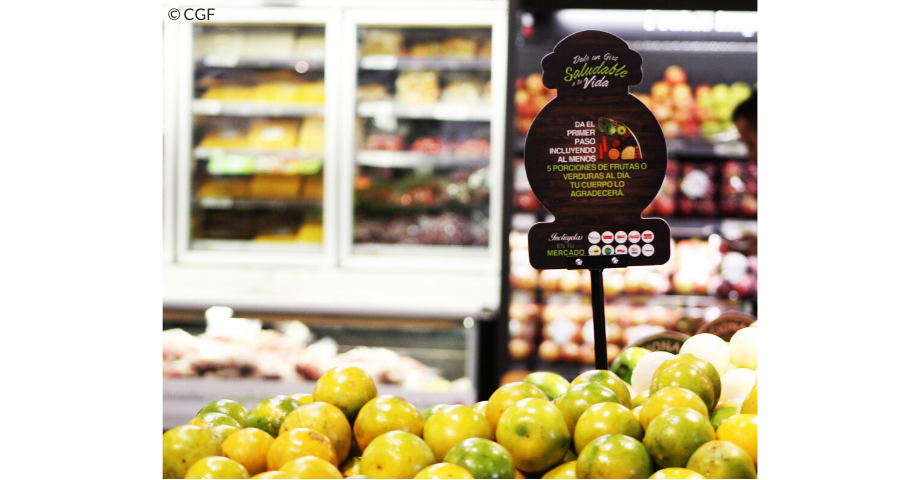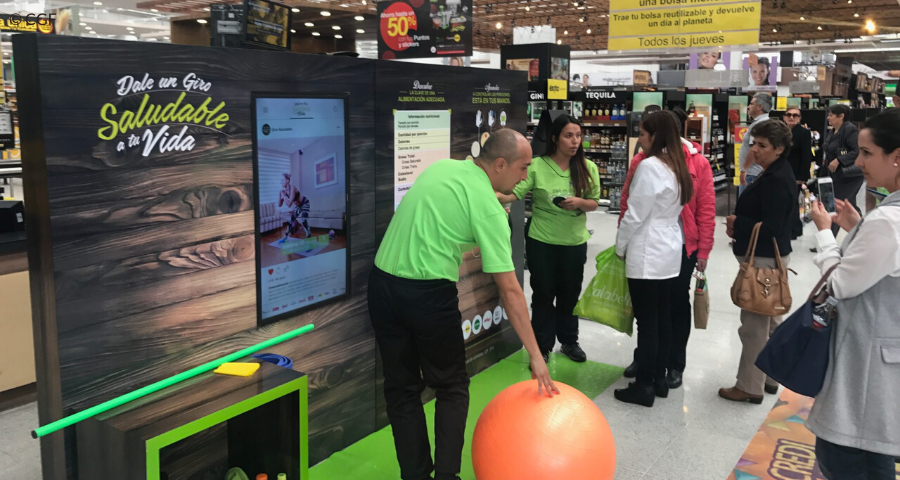Tell us a little about yourself…
I lead Health and Wellness at The Consumer Goods Forum (CGF). I love my work because I’m really passionate about the power of collaboration to drive positive change, and that is what CGF is all about, working with retailers, manufacturers and their partners across the supply chain and around the globe. I am Irish and live in France with my husband and our two little ones.
How has CGF been involved in the N4G process?
CGF was asked to be part of the Business Constituency Group, which was set up as one of the stakeholder groups to help support and inform those leading the N4G – namely Government of Japan (GoJ), UK Department for International Development and Bill & Melinda Gates Foundation. CGF, along with the Global Alliance for Improved Nutrition (GAIN), are co-conveners of the Workforce Nutrition Alliance, which is one of the key commitment areas for N4G. We also have a small team in our Tokyo office who has been working directly with GoJ.
What are your ambitions for the N4G Tokyo Summit and beyond?
I think it’s really about bringing nutrition to the forefront of driving sustainable development, helping to create a real focus on nutrition as we work towards the 2025 WHA and 2030 SDG goals. And while making commitments is not new, this is a great platform to go beyond business as usual. The framework that has been developed for the SMART N4G Commitment Making Guide will help drive these ambitions – and hold us all accountable for those commitments.
On a more personal level, I hope to use this as an opportunity to motivate our 400 members to be part of the solution and demonstrate that nutrition really is key to sustainable and inclusive development. We are really trying to pivot from reach to impact, and what these commitments mean in real terms. I’m particularly excited about the Workforce Nutrition Alliance, driving and impacting improved nutrition for 3 million people who are working within our members’ supply chains by 2025.
Why do you think N4G is an important milestone? Has the COVID-19 pandemic changed this or impacted your work?
N4G is a unique platform to me in that it is bringing together multiple stakeholders with the common ambition of improving nutrition. I haven’t always seen nutrition as the specific point of focus - it’s usually part of a larger conversation, but not the focus - so that makes N4G significant and exciting to me.
If anything, COVID-19 has expanded our work and highlighted health as the foundation of a good life, which makes N4G even more relevant to global discourse. The pandemic has opened our eyes about the need to keep the supply chain open and moving, meeting the challenges of continued availability of nutritious foods, the importance of keeping people healthy and the power of collaboration. It has changed ways of working, created new bridges and brought people together. The realisation of the supply chain and all the steps that are included, the number of people, organisations, companies, and people who are necessary to keep that all moving has been really fascinating and I’m really proud to be working in this sector which has demonstrated its adaptability and resilience. We have seen how this is impacting employees, customers and business models, as well as people’s ability to come together and make things happen quickly. I hope some of the lessons and behaviours remain as part of what our ‘new norms’ will be.

Has anything surprised you in the N4G process?
More than anything, I’m surprised and amazed by how many people and different types of stakeholders need to come together to drive this kind of work - the diversity of people involved has been really impressive. I have great respect for those leading this effort because driving commitments from governments, business and civil society is a huge effort. We’ve all been through similar commitment making processes but I have the feeling that this is different.
What is exciting about your N4G work?
I am really energised by the common ambition to drive positive change to improve nutrition and the spirit of collaboration is obvious. There is recognition that the scale of problem is too big for any one company, government or organisation to end so there is a real desire to build commitments – and hold each other accountable. Not judging but holding accountable. Everyone is looking for impact.
Have you faced any challenges in this work?
Raising awareness of the role of nutrition and its impact has actually been a challenge. There are always other priorities for companies and stakeholders – whether forced labour or human rights – so showcasing that nutrition is at the heart of sustainable development and growth is not always so obvious, or does not feel as pressing.
Nutrition Connect focuses on the intersection of public and private sectors across the food system – how does CGF engage with actors from different sectors?
Engagement with diverse, multisector partners has always been at the core of our work. We have found that engaging across departments within businesses and organisations is key, and that commitment to act needs be cross functional and make sense across business practices.
Once we have commitments, the best impact comes from concrete collaboration in communities but this can be challenging. We have had doors closed on us, and have not always been seen as part of the solution. But we have done a lot to change the way we work and try to lead change where we can manage it – especially in stores with consumers and with employees in our supply chains. We invited public entities who were willing to work with us to help us codesign programmes and to challenge us to make sure what we are doing to has impact. Collaboration for Healthier Lives in particular has really helped us build proof points of what we’re doing as an industry to have a positive role.
To help build trust, we are measuring what we’re doing – sharing data with academics so we can have independent tracking and measurement of what we’re doing. We share all our data, even if it’s not what we want or expect to see. It has been a very good learning process and has helped us concretely work with stakeholders and learn what works and what doesn’t. in general we strive to act locally and share globally.
If you are inviting family or friends over for dinner, what would you prepare?
Well, my husband is definitely the cook in the family. If I’m cooking, I am very stereotypically Irish – every dish has potatoes in it. But I do love living here in France, where there is such rich cultural and traditional appreciation for food and cooking… so I would leave it up to my husband to prepare something tasty for our guests!

For more information on the Health & Wellness work at The Consumer Goods Forum, please contact hw@theconsumergoodsforum.com.
